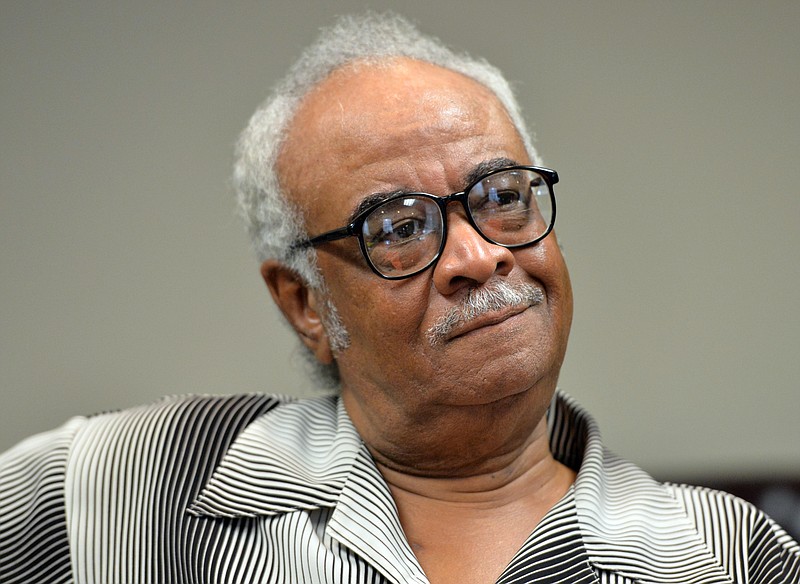ATLANTA - A former Georgia lawmaker and civil rights activist told a judge Friday he regrets making the mistakes that landed him in federal court on fraud charges and said he takes full responsibility for his actions.
Tyrone Brooks, an Atlanta Democrat, pleaded guilty in April to one count of filing a false tax document and no contest to five counts of mail and wire fraud. U.S. District Judge Amy Totenberg said she wants to think about the case over the weekend and will announce Brooks' sentence Monday.
"I want to take the time to reach a decision that really does represent my best effort at reaching justice, however flawed that might be," Totenberg said.
Prosecutors have asked for two years in prison. Brooks' lawyers are seeking five years' probation, citing his years of dedicated civil rights work.
"I take full responsibility for all that has occurred. No one is to blame but me," Brooks said. "I regret the mistakes I've made in doing this work."
As a state representative, Brooks was best known for helping lead the effort to remove the Confederate battle cross from Georgia's state flag. He also prodded federal authorities to reopen an investigation into an infamous 1946 lynching of four people at Moore's Ford in Walton County.
Prosecutors acknowledged Brooks' good works, but they said he used the goodwill he accumulated to execute fraudulent schemes.
The indictment alleged Brooks solicited about $1 million in contributions from the mid-1990s to 2012 from individuals and corporate donors and used much of it for personal expenses. The contributions were made to the Georgia Association of Black Elected Officials, which Brooks had led since 1994, and to Universal Humanities, a tax-exempt organization he founded in 1990.
Brooks' statement to the court took only about two minutes. He said he should have had proper accounting procedures and did not. He takes full responsibility for that, he said.
Totenberg asked if he wanted to address prosecutors' allegations that Brooks' earlier statements to the media showed he had failed to accept responsibility. Brooks has said the prosecution was government retaliation for his civil rights work.
"Your Honor, I do not minimize my responsibility. I do not run from my responsibility," Brooks said in response. "I am fully aware of the mistakes I made."
Totenberg pressed further, asking if he wanted to comment on testimony by some of his friends that they were disappointed and upset that their names appeared without permission on documents showing them involved in a charity they knew nothing about.
Brooks said materials like that were always sent to the people mentioned. Perhaps, he said, he didn't follow up adequately.
"I would never, ever use a person's name without their permission," Brooks said, but he said he understands some people may have forgotten and that much of it happened a long time ago.
Totenberg said she accepts his statement but said she must consider evidence that some of the activity in question took place in recent years.
Prosecutors said Brooks hasn't taken responsibility for the activity that led to charges of mail and wire fraud.
Brooks could have done things correctly, federal prosecutor Richard Moultrie said.
"Rep. Brooks is in this courtroom, and it's very sad that he is, but it's his choice," Moultrie said. "It's his choice to have defrauded his donors."
Prosecutors have taken Brooks' life of good work into account, Moultrie said, noting that the sentencing guidelines suggest Brooks should serve between 46 and 57 months in prison while prosecutors have asked for 24 months.
Former Gov. Roy Barnes, an attorney for Brooks, argued probation would be more suitable. He said Brooks has already resigned his legislative office, been publicly shamed and, because he's a convicted felon, lost civil rights including the right to sit on a jury and the right to vote.
"The government has said that's nothing," Barnes said. "To this man in this circumstance, it is the world."
Brooks didn't set out to defraud people, Barnes argued, but was constantly working for countless good causes and failed to tell his donors exactly what the money was being used for and to keep proper records.
